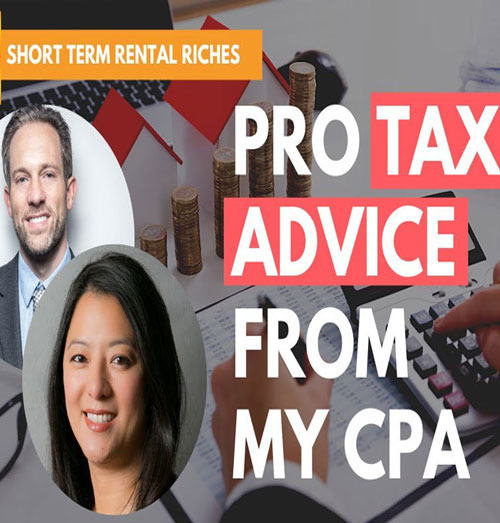How to build an Airbnb Business: Connecting Investors Across the Nation with Great STR Investments – Avery Carl
These days there are so many resources and experts for every industry….
After spending years in the STR industry I feel very fortunate to have access to some of the most seasoned experts in the space.
Avery is one of those people.
She is the host of the “Short Term Show” which is arguably one of the most recognized podcasts in our space.
She has been featured on almost every short-term rental industry resource.
She wears a lot of hats. From her position as CEO at the Short Term Shop where they’ve connected owners with profitable STRs generating over $1 billion in revenue to managing her own personal portfolio.
We dove deep on several subjects that you will find helpful!
Stay tuned as we unravel how to:
- As a STR sales agency – the current market outlook
- Benefit to being in an owners market
- Supply & Demand
- Growth Mode vs. Cruise Mode
- the “enemy method”
- Established vs. Emerging Vacation rental markets
You can find out more about Avery and The Short Term Shop by visiting her company website here. Don’t forget to check out her podcast, “The Short Term Show”
Click Here to view TranscriptWelcome to short-term rental riches. We’ll discuss investing in real estate but with a specific focus on short-term rentals. Quick, Actionable items to Acquire, Manage and Scale your portfolio. I’m your host Tim Hubbard.
Tim: Welcome back to the Short-Term Rental Riches podcast. I’m happy you’re all here again. We have an extra special guest today, Avery Carl. She’s the Amazon best seller of short-term rental long-term wealth. A lot of you may have heard her on her show, The Short-Term Show, which is a fabulous podcast as well. She wears a lot of hats, so I’m excited to dive into it with her today. Welcome to the show, Avery.
Avery: Hey, thanks so much for having me.
Tim: Yeah, I’m excited to have you on today. I know you got a just vast knowledge and experience in the short-term rental world. You want to give us a quick background?
Avery: Yes, okay. As a kid, did not grow up saying, I want to be a real estate investor, a real estate agent when I grew up. I kind of backed into it. I think as most people end up doing, was working in the music business in Nashville for very little money. It’s very glamorous, but they don’t pay anything because there’s always an intern willing to do it for free. My husband and I, I guess we need to start a little further back. My husband and I, when we moved from New York City to Nashville, our real estate agent was really trying to get us to buy a house in this really hip appreciating part of Nashville called East Nashville. And we said, no, thank you. We were moving from Brooklyn to Tennessee. We’re tired of neighbors. We want to go out in the country. So, we did, but we had a little bit of money left and she’d made such a huge deal about all this appreciation that we were like, I don’t know, maybe we should buy one of those and we should like, rent it out and the renters will pay the mortgage for us and we won’t really have to pay anything. And then by the time our future kids need to go to college, we can just sell it and it will have appreciated enough that we can pay for their college with that instead of out of our own pockets. And I thought it was this genius, personal finance genius, totally stupid, but we did buy one. We bought a long-term rental. And luckily, we got really lucky that it was a really good deal. And it cash flowed about a thousand dollars over the mortgage every month, which when you did the math on what I was making a month, that was about what I was making after my paycheck deduction. So we went, wait a minute, we just doubled my income with this one house. We need to buy more of these. We need to make a business out of this. So, then we started educating ourselves on real estate investing after we’d already made the huge purchase, started listening to podcasts, reading all the books. And we had just enough money for one more property for a down payment. And we said, well, what can we buy that’s gonna make us the most amount of money, the fastest, so that we can go buy more. And we landed on short-term rentals and we knew we did not wanna do it in Nashville because the regulations already, even at that time in 2015, were too crazy and we couldn’t afford to buy something and then be told we couldn’t use it for that. So, we’d just been on vacation to the Smoky Mountains, which is about three and a half hours east of Nashville. And we’d stayed in a cabin. Everybody else that was there was staying in cabin. So, we said, somebody owns these cabins, why can’t it be us? And we’ll figure out this self-management thing remotely because at the time, the standard for that market was 40% of your gross. And we were like, we can’t afford that. We need that 40%. We’ve got more real estate to buy. And so, we kind of figured out this was before any, there was no podcast. There was no, there was a get paid for your pad. That was it. There was no gurus, there were no courses, there were no Facebook groups. So, we just kind of had to like figure it out as we went. That very first one went really well. Yeah, back in the day, had to go uphill in the snow both ways. First one went well, scaled that to five over about a year and a half. Five and a half years later, we’ve got 250 doors, no partners. Eight of them are short-terms. The rest are single-family, multi-family, long-term of a big believer in a diverse portfolio. Started the short-term shop on our second purchase because we realized there weren’t really any agents in the space who could answer our questions about this specific type of investing. So, our first market was in the Smokies and now we’ve got 70 agents across 20 markets in the country. And if you buy with us, yeah, we teach you how to manage it for free while you’re still under contract. So, by the time you close, you’re ready to go. You already know what’s going on. You’re not floundering around with a $500,000 investment. You’re like ready to turn the key and rock. So, shame on us.
Tim: Awesome, yeah. Awesome, awesome story. Awesome to see you practicing what, or preaching what you practice. And also, great to see that you have a diverse portfolio. I think a lot of people in the industry, a lot of times people really niche down and it’s the only thing they do. I also believe that having a diverse portfolio is a good idea, not just one asset class, but across multiple markets even. So, you guys have eight of those are short-term rentals you said out of your current portfolio? Okay, do you mind telling us a little bit more about those? Are they all the same type like vacation rentals? Are they in the same areas or?
Avery: Yeah, so we like to stick to the vacation rental niche of short-term rentals. So, what I mean by that is in vacation markets that are dependent on that tourism, they’re dependent on short-term rentals. So, in areas where there’s not a lot of hotel presence. So, we have five cabins in the Smoky Mountains in Tennessee. So, in and around Gatlinburg, Pigeon Forge, Sevierville, Wears Valley, everything from a studio to a five bedroom. We’ve got three across the panhandle of Florida, two single families. One of them is a four bedroom with a pool in Destin, Florida. The other single family is a four-bedroom, one house off the beach in Cape Sandblast, Florida. And then the last one is actually a mixed-use building that’s commercial on the bottom, which is I’m actually sitting in it. It’s my office on the bottom, but the top is a three-bedroom condo.
Tim: Okay, very cool. Do you have a favorite among those?
Avery: I think the four bedrooms in Destin is my favorite. That one was a real turning point in our portfolio. We were able to get a really good deal on it. It had been foreclosed on twice. And the second person that it was foreclosed on had already, they were flipping it or rehabbing it. And they’d already done all the really expensive hard work. So, all that was left for us to do after they ran out of money was cosmetic. So, we were able to get a really good deal on it. And it is a really great property. It’s a beach house, but it’s kind of like uniquely shaped and cool looking and its bright blue. And that one really like the income versus the purchase price versus what that property did for us income wise in terms of being able to expand our portfolio makes it my favorite.
Tim: Yeah, yeah, awesome. It’s nice to find those properties too where a lot of the hard works already done. I mean, you get into some of these monster renovations and that’s when you start losing hair and it turns colors and I’ve been there as well. So, well, let’s see. A lot of ways we can go with this conversation. I guess it’d be interesting to dive into it since you guys have so many agents and you help so many owners buy properties. And we are in sort of different economic times. But I think the bright side of it is that we are in a buyer’s market, which we haven’t been in forever, right? So, do you mind just filling us in on kind of how you see things out there at the moment?
Avery: Yeah, yeah. So, I’ll tell you, like I told our clients, yeah, the interest rates are high right now. There’s no disputing that. But they’re just a line item on your spreadsheet like any other expense. And the good thing about the interest rates being so high is they’ve scared off all the amateurs. So, two years ago, when we had new clients come in to our office, I would say, hey, guys, you know, you’re going to have to go in here and offer like $50,000, $100,000 over asking immediately on every single property. You don’t have time to analyze. You analyze after you get the contract. You don’t have time to do anything because there were a thousand people offering on every property and things were going in like 30 seconds. So now because and that’s, you know, when the interest rates were two and three percent and everybody could buy one. So now that the interest rates are higher, you have the space and time to really think through the property, analyze it, find opportunities to increase its income before you make the offer, figure out exactly what number works best for you. You can ask for closing costs to be paid. You can negotiate purchase prices. You can do all those things to get better deals because all the amateurs are out of here. They’re, you know, all the people that just were buying these things, not as weren’t looking at them as the business that they are. Just looking at them as like a cool way to impress their friends. And let me just slap this up on Airbnb and get rich when I’m not using it. That’s not real life. So, all those guys are gone. And the real investors who are really willing to do the work are all that’s left. So, you have a lot of opportunity to get really great deals as an investor.
Tim: Yeah, definitely. It’s nice to not have to make a decision under all that pressure. I mean, those are crazy times that we’re under. It’s nice to be able to ask for things that are broken to be fixed, you know. So, with all that said, I mean, what are your opinions on sort of the supply side of things? I sort of think that, yeah, we are in a buyer’s market. It’s a great time, but there’s maybe not as many people buying. So, for those of us that already have short-term rentals, I think if we we hold strong and we learn to understand like the new economy that we’re in, that we’re going to still do really well because there’s still a lot of demand for short term rentals. Do you have some some thoughts on that?
Avery: Yeah, yeah. So, I think that on the owner side of things, that now the difference is really in optimizing your management, having greater amenities and your decor. So, you know, five, six years ago, you could buy an old grandma cabin and slap it up because there weren’t really a lot of sophisticated operators in the market just yet. And so now there’s a lot of people who have really done their homework, who are really good at managing their properties. So, the bar has been raised a little bit. And I think the people who have not raised their property with that bar are the ones that are seeing the real declines. So, I don’t think that there’s going to be any sort of short-term rental crash in certain markets. There may be in some markets because real estate is really market specific. It’s not nationwide. The areas that I try to stick to as an investor and with the short-term shop are typically true vacation markets that are dependent on people staying in short term rentals. Not a lot of hotel presence. It’s been the normal thing for people to come to these areas and stay in short term rentals for decades and decades. So, it’s not that I mean, in some areas, yes, but it’s not that there’s all these brand-new short-term rentals that were not short-term rentals before flooding the market necessarily. A lot of the growth that we’re seeing in supply, you know, it’s coming from data sources like AirDNA, which is a great source, but it can only measure what’s on Airbnb and VRBO. In a lot of these markets, there were thousands and thousands of short-term rentals that were just on these big archaic old school property management companies that have been around since the 60s that this is how they run their business. That’s how they’re still running their business and they’re not on Airbnb and VRBO. So as those properties have been sold to newer, more sophisticated investors that are converting them from that management, those types of management companies onto Airbnb and VRBO, you’re seeing, I think the growth numbers are a little inflated because of that, because they were short term rentals already. They were a part of the inventory. They just weren’t measurable. They couldn’t be tracked because they weren’t on those platforms. And now they can. So anyway, long story, long story long.
Tim: No, no, no, that’s a great point. Yeah, I like the stability in these vacation rental markets, like you said. I mean, they’re vacation rental markets and they’ve been that way for a long time. And that’s how the local economies thrive, right. So, the risk of having regulations change and preventing people’s is a lot lower than it is in like an urban city, for example, sometimes. So, one of the the challenging things in some of these vacation rental markets I’ve seen, though, at least for individual homeowners, are their property management options, because a lot of times there is like that one property manager that just dominated the market and they charge 20, 30, 40 percent. And they can do a really good job. And now that we have so much access to all these OTAs, there are other options available. And I know, or as you said, you guys are self-managing. I think this is something you guys teach about, too. So, do you mind shedding some light on the self-management side of things compared to a traditional property manager?
Avery: Yeah, absolutely. So, we started self-managing because we needed that money. We needed to cut costs wherever we could so that we could keep it and buy more properties. So, I think that depending on where a person is in their investment career, in their life, will determine whether or not a property manager or self-management is right for them. Most of the people that come to us just by design are people that want to self-manage. So, I call it growth phase versus cruise phase or growth mode versus cruise mode. If you’re in growth mode, where you’re really trying to squeeze every last dollar out of all your properties, whether it’s short-term, long-term, whatever, so you can scale and grow. That’s probably the time for self-management in terms of if you’re if you’re already like, OK, you know what, I’ve got enough properties and kind of tired of messing with this stuff. In cruise mode, then that’s probably a good time for a property manager. Now, in vacation markets, when I first started, all the property managers were like Airbnb. What? That’s kid stuff. And they know Airbnb every now and then they’d be on VRBO. And they were only relying on direct bookings to their website. And a lot of times these guys were not like using SEO or anything like that to get. They’re just hoping that you find Uncle Ricky’s Cabins dot com because your grandmother came here. So now through the whole emergence of self-management has also come a newer type of property manager who understands why an owner might not want to go use one of those big property management companies and they understand what it’s like to be a self-manager and the proper tools to use to optimize the listings. And they’re kind of like a they’re now becoming property managers, but they have a much better hold on what’s going on in technology now and what gets bookings and how to optimize than a lot of those those big old dinosaur guys. So, I think the whole emergence of self-management has kind of created a newer type of property manager that is better and more optimized and able to fill those gaps that the older school property management companies either couldn’t or don’t care to.
Tim: Yeah, no, great point. I mean, I think of myself as a techie guy who used to work for a software company and I can’t even keep up with all the software options, you know. And so, some of these older establishments, you know, unless they have a big team devoted to that, it’s hard to decide what tools to use now. I know there’s a whole bunch of programs out there. I’m just curious, do you have like a favorite, maybe not necessarily the most important software tool you use, but just like a favorite?
Avery: We use hospitable and price labs and TouchStay. OK, so, you know, three do three different things. But those are our key components there.
Tim: Right. OK, I use the price labs one. We’ve talked about that quite a bit on this channel before. Pricing obviously is very important, right? I mean, we can have the perfect property, but if it’s not priced right, people aren’t going to be booking it or at least not booking it too often. And actually, in your book, you talk about affordability. And I think affordability is really important. I mean, a lot of people in the US economy are getting squeezed or really around the world with inflation. And do you mind talking about affordability and how that plays into how someone might want to make a decision on where they’re purchasing a vacation rental?
Avery: Yeah, yeah. So, I typically divide vacation markets into two types. So blue chip markets and emerging markets. So, your blue-chip markets are going to be the areas that are they are great places to own vacation rentals always have been probably always will be. You’re going to see really, really, really high gross annual income numbers there. But you’re also going to pay quite a bit to buy a property in those markets because of that. So, places like the Smokies, Destin, Florida, Broken Bows becoming one of those. And then you have what I call emerging markets, and they’re not emerging in terms of tourists finding them. These are still mature vacation rental markets where tourists have always gone, but they’re emerging in terms of there’s not a lot of sophisticated managers there yet. So maybe they’re they’re smaller markets and some of them are not necessarily smaller vacation markets. So, like Western North Carolina would be a good emerging market. Cape Sandblast, where I bought my most recent one, would be a good emerging one. But the problem with those, they are more affordable. But you’re not going to see a lot of great data because the reason they’re emerging is that the majority of the properties are still on those dinosaur property managers like Cape Sandblast. Like something like 85 percent of the properties are still on one to two property management companies that have been there since the 80s. And you can tell their website is not like sleek at all. So, because of that, there’s not a lot of great data. So, you’re kind of trading that lower price point for there not being a lot of data. But there’s a lot of opportunity in those types of markets because they are more affordable. The Smokies was one back when I started buying in 2015. But now, you know, the cat is very much out of the bag. A lot of really sophisticated operators have moved in. So, you know, it’s not what I would call emerging anymore. But looking for those emerging markets, the price points are going to be a little lower. The income data is going to be a little lower. But, you know, that’s the tradeoff that you have. And lower price point versus, you know, where the interest rates are right now.
Tim: Yeah, great points there a couple of things I sort of want to dig into, I guess one is like when we don’t have a lot of data, how we can really educate ourselves to get a fairly accurate idea of what that property might do. You guys talk about or in your book, you talked about the enemy method, which is a very catchy name. So stuck. Do you mind just breaking that down real quickly? Kind of what what that is?
Avery: Yeah, absolutely. So, you can have the best data in the world. Data can tell you what a property is doing, but it can’t tell you why a property is doing that. So, it can say these four bedrooms is doing this amount, but without looking at it and looking at the other properties around it or your enemies, you kind of can’t tell whether that’s underperforming. Is that overperforming? Is that about where it needs to be? So, you’re using the enemy method to look at what your enemies are doing and how your property could outperform or maybe not perform as well. So, you know, if if your data says this property makes this much, but you go look at it in the pictures, the paint’s like peeling off and the windows are broken and it’s missing shingles and the yard looks like crap. Well, you know, that’s not the best it can do because it looks like crap. And if you spruced up the outside, it would do better. So basically, you’re using the enemy method to kind of run comps and see where on that data spectrum that you have a property that you’re looking at might fall, because there’s a lot of intangibles that go into how much a property could make other than just the data. Like, can I add X, Y and Z amenities or does it already have that? What are the ways that I can improve this to get this to the number that I want it to be at versus where it’s performing right now?
Tim: Yeah, great point. I, we talk a lot about comp sets and that’s pretty much what that is, right. Your enemies are your comps and we need to understand them as best as possible to have the most accurate picture of what we’re kind of getting into. So super, super important for anyone out there looking in to get on a market. We want to make sure we know what the possibilities are. And what opportunities we have. Another thing, Avery, that I think is playing into the affordability and sort of the migrations across the US is our ability to work remotely now. People are more virtual than ever. I really like the fact that people are living in Airbnbs now, or they’re they’re at least staying there for much longer. I think that it’s just it’s kind of the way things are going. I know it impacts certain types of short terminals differently than other like urban properties, for example. It’s much easier or much more common, I guess you could say, to see the much longer extended stays. Since you focus mainly on vacation type markets, are you guys seeing those reservation links extend a little bit as well?
Avery: So, we don’t get as many of the digital nomad types as we just get like families on vacation. I’m sure there are some, you know, that I haven’t just drilled down on that data. But for us personally, we’re all vacations all the time.
Tim: Yeah, gotcha. OK. Well, people always want to take vacations. I don’t think that’s ever going to go away, right? Doesn’t mean we always can, but we’re always going to want to, I think. And a lot of times in a down economy too, people, they maybe jump off that very top tier of vacations or the most luxurious travel options, and maybe they settle for something kind of a little less than that. Do you have some thoughts on that and how that might play out in some of these more higher end vacation rental markets?
Avery: Yeah, yeah. So, in the blue-chip markets that we focus on, they’re still cheap. So, we’ll take like the Smokies, for example, or like Panama City Beach. So, the Smokies is always going to be cheaper than going to Aspen or Vail or Breckenridge or any of that stuff, because it’s most of the tourists are driving in. Same thing with Panama City Beach. It might not necessarily be cheaper than Mexico prices, but it’s less of a hassle if you live in the southeast to just drive for five hours, go to the beach at Panama City Beach, then fly to Mexico. So, in a potential downturn where people, you know, maybe wages have decreased or maybe they’re a little tighter on money. They may not be taking those Aspen trips, but they will still be able to drive to like the Smokies or Shenandoah or somewhere like that, where it’s not as big of an expense on travel, but it’s still a mountain vacation. So, we try to focus on that and on regional drivable, because it’s still always going to be more affordable than those big, huge like Hawaii destination vacations where the whole family has got to get flights. You got to get there. It’s a huge deal. Or you can just, you know, drive to the Florida Panhandle and call it a day.
Tim: Yeah. No, no. Excellent point. Gosh, you cut out just the airfare. And then if you think of this in terms of like a family going there and there’s five people in the family and you chop out five flights and they settle for a drive to destination like you’re talking about. That’s a huge savings. I can’t believe how expensive flights are sometimes these days. It’s crazy. Well, really good, really good points there. I think one of the most important pieces of being successful with a real estate investment, finding the right property. And of course, you guys have been helping lots and lots of people do that. So, do you mind telling us a little bit about the short-term shop and what you guys do and how you can help some people in our audience?
Avery: Yeah, absolutely. So, we are a team of real estate agents across 20 markets where all we do are short term rentals. So, we don’t even take clients who want to buy a primary home or sell a primary home or a long-term rental. We only do short term rentals. Most of our agents are short term rental owners. If they’re not, they’re on their way to being that. But we are all just live, eat, sleep and breathe. Short term rentals. So basically, what we do when buyers come to us, we have a little consultation call. We talk about what markets might be best and let them figure out some questions, because sometimes your price point, like what you want to spend is a lot of times going to determine which market. So, if you want a single family on the beach, Destin, Florida is probably not the place for you unless you want to spend five million dollars, at which point the investment may not make sense. But, you know, maybe we scoot over to Carolina Beach, North Carolina. And now that single family on the beach makes sense. So, we’ll have a consultation call, kind of figure those things out. Then we’ll get you with one of our specialized agents in the market. So, you want to buy in. We’ll help you choose the right market. We teach you how to analyze. We don’t analyze for you because there’s just too many variables. And like we could never. No one can really account for the X factor of anyone else. So, we help you through that. And then we teach you how to manage your property. So, most of the clients that come to us want to self-manage. And so, we’ve got a whole back-end program. We call it Management Mondays, where our clients can go and learn how to manage their property. They learn everything from how to set up their Airbnb and VRBO listings to how to use the property management software to, you know, getting help sourcing their local local boots on the ground, cleaners, handyman, etc. And we do it all while you’re still under contract. So, by the time closing date rolls around, you’re already confident. You know what you’re doing. You’re not like, oh, my God, what do I do? I’ve just closed on this expensive house and I don’t know how to run this thing. You already know all those things. And then we provide support for you basically forever. So, if you ever run into a guest problem that you don’t know the answer to, you can come to us. We’ve got a private Facebook group with a bunch of all of our past clients helping each other and us helping them. So, you know, it’s a community. And we’re here to make sure everyone else is successful as well. So that’s that’s what we do.
Tim: It’s awesome. It’s a one stop shop, right? Pretty much. And you guys obviously have tons and tons of experience. If anyone out there hasn’t heard Avery’s podcast yet, I highly, highly suggest it. A lot of great interviews, a lot of good information. Let me ask you one other thing, Avery. I the title of this podcast is Short Term Rental Riches. A lot of times when someone thinks of the word riches, they sort of think of the financial side of it. But that’s not all that life is about, obviously, right? People, there’s lots of rich people that aren’t happy. So, is there one thing in your life or something that you’ve changed in your lifestyle recently that’s enriched your life, but not in a financial way?
Avery: Well, really just the ability to stop working when my kids are out of school. So, when they get out of class every day at two, I’m there to pick them up. The ability to be able to give them the stay-at-home parent experience while still having a job and bringing in income has been really, really invaluable because, you know, they’re only little for so long. And so, investing in real estate and short-term rentals has given me the ability to do that. Like, I picked my daughter up from theater camp the other day, and she goes, would you like to go see a movie with me? She’s four. I was like, hell yeah, I want to go see a movie with you. Let’s go see a movie across the street and see a movie. So, you know, real estate investing has given me the ability to do that for them. And that’s, you know, irreplaceable at that time.
Tim: Definitely, definitely. That’s that is that’s the goal, right? Leaving the rat race and having and having that flexibility. Well, I want to thank you, Avery, for coming on. Tons of great insight. I’d love to have you on again in the future. I know the industry is just changing really, really quickly. We’ll make sure that we have all of your contact information or show notes and everything. But any last words before we jump off?
Avery: I don’t think so. Thank you so much for having me. I hope to have you on my podcast soon. And thanks again.
Want to get on the fast track to Financial Freedom through short-term rentals what all starts with the properties you acquire but you want to make sure that you acquired the right properties. I want to give you my e-book that will show you how to do just that. There is no charge, It’s my gift to you for being one of our subscribers. Just go to restmethods.com. That’s R-E-S-T methods.com
RELATED PODCAST EPISODES

















